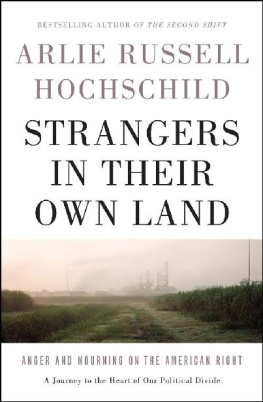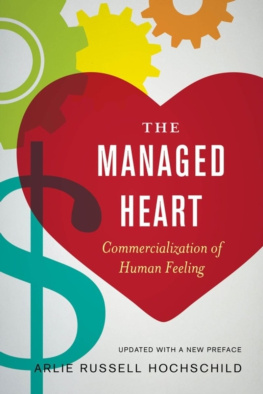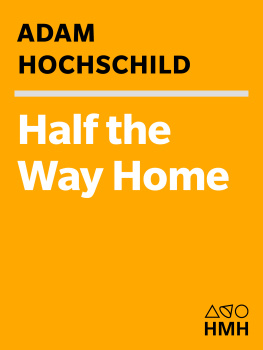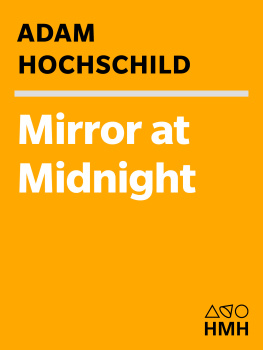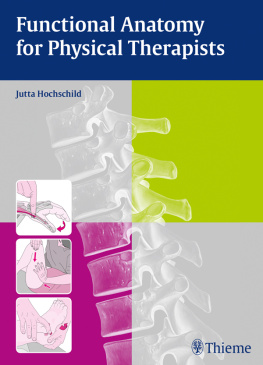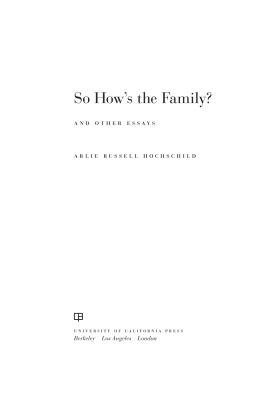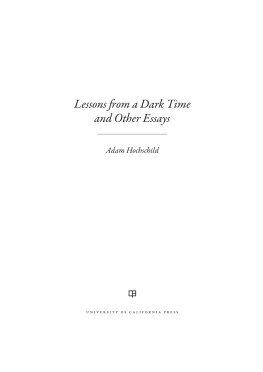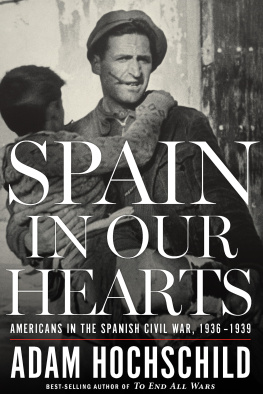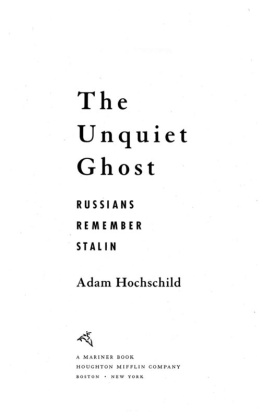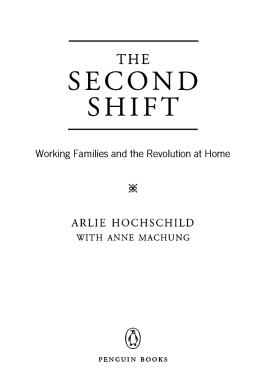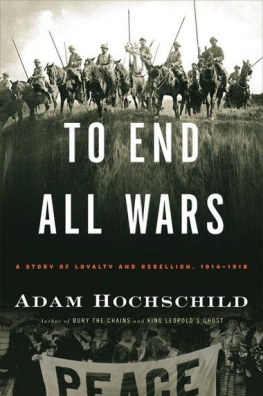
ALSO BY ARLIE RUSSELL HOCHSCHILD
So Hows the Family? And Other Essays
The Outsourced Self: Intimate Life in Market Times
Global Woman: Nannies, Maids, and Sex Workers in the New Economy (co-editor)
The Commercialization of Intimate Life: Notes from Home and Work
The Time Bind: When Work Becomes Home and Home Becomes Work
The Second Shift: Working Families and the Revolution at Home
The Managed Heart: Commercialization of Human Feeling
The Unexpected Community: Portrait of an Old Age Subculture
Coleen the Question Girl

2016 by Arlie Russell Hochschild
All rights reserved.
No part of this book may be reproduced, in any form, without written permission from the publisher.
Requests for permission to reproduce selections from this book should be mailed to: Permissions Department, The New Press, 120 Wall Street, 31st floor, New York, NY 10005.
Published in the United States by The New Press, New York, 2016
Distributed by Perseus Distribution
ISBN 978-1-62097-226-7 (e-book)
CIP data is available
The New Press publishes books that promote and enrich public discussion and understanding of the issues vital to our democracy and to a more equitable world. These books are made possible by the enthusiasm of our readers; the support of a committed group of donors, large and small; the collaboration of our many partners in the independent media and the not-for-profit sector; booksellers, who often hand-sell New Press books; librarians; and above all by our authors.
www.thenewpress.com
Composition by dix!
This book was set in Fairfield LH
Printed in the United States of America
2 4 6 8 10 9 7 5 3 1
For
Harold and Annette Areno
And for
Willie, Wilma, Marylee, Mike T., Clara, and the General
Contents
When I began this research five years ago, I was becoming alarmed at the increasingly hostile split in our nation between two political camps. To many on the left, the Republican Party and Fox News seemed intent on dismantling much of the federal government, cutting help to the poor, and increasing the power and money of an already powerful and rich top 1 percent. To many on the right, that government itself was a power-amassing elite, creating bogus causes to increase its control and handing out easy money in return for loyal Democratic votes. Since that time both parties have split their seams and Donald Trump has burst onto the scene, quickening the pulse of American political life. I had some understanding of the liberal left camp, I thought, but what was happening on the right?
Most people who ask this question come at it from a political perspective. And while I have my views too, as a sociologist I had a keen interest in how life feels to people on the rightthat is, in the emotion that underlies politics. To understand their emotions, I had to imagine myself into their shoes. Trying this, I came upon their deep story, a narrative as felt.
The subject of politics was a big departure for me but my close-up approach was not. In a previous book, The Second Shift, I focused on the abiding question of how parents guard care and time for life at home when both work outside it. I found myself sitting on kitchen floors in the homes of working families, watching to see which parent a child called for, which parent answered the phone, the relative gratitude each partner felt to the other. In search of a family-friendly workplace, I hung out in parking lots outside industrial plants and corporate headquarters to observe the hour when weary workers headed home (The Time Bind) and explored workers fantasies of the vacations theyd go on, the guitar they would learn, if only they had time. I conducted in-depth interviews with Filipina nannies (Global Woman) and, in a small village in Gujarat, India, interviewed commercial surrogate mothers who carry the genetic babies of Western clients (The Outsourced Self). All this work led me to believe strongly in paid parental leave for working parents of newborns and adoptive babiesa policy offered by all the worlds major industrial nations except the United States. Now that most American children live in homes in which all adults work, the idea of paid parental leave seemed to me highly welcome, humane, overdue. But this ideal has come slam up against a new truthmany on the right oppose the very idea of government help for working families. In fact, apart from the military, they dont want much government at all. Other idealsstrengthening environmental protection, averting global warming, ending homelessnessface the same firmly closed door. If we want government help in achieving any of these goals, I realized, we need to understand those who see government more as problem than solution. And so it was that I began my journey to the heart of the American right.
Already in the late 1960s, sensing a split in American culture, my husband Adam and I set off to live for a month in Kings Kauai Garden Apartmentscomplete with jungle bird and beast sound effects piped into a common jungle decorated patioin Santa Ana, California, to try to get to know members of the John Birch Society, an earlier right-wing precursor to the Tea Party. We attended meetings of the society and talked to as many people as we could. Many members we met had grown up in small towns in the Midwest and felt deeply disoriented in Californias anomic suburbs, an unease they transformed into a belief that American society was at risk of being taken over by communists. Looking around, we could well understand why they felt taken overin a few years, entire orange groves had disappeared into parking lots and shopping malls, a case of wildly unplanned urban sprawl. We too felt taken over by something, but it wasnt communism.
I have lived most of my life in the progressive camp but in recent years I began to want to better understand those on the right. How did they come to hold their views? Could we make common cause on some issues? These questions led me to drive, one day, from plant to plant in the bleak industrial outskirts of Lake Charles, Louisiana, with Sharon Galicia, a warm, petite, white single mother, a blond beauty, on her rounds selling medical insurance. Unfazed by a deafening buzz saw cutting vast sheets of steel, she bantered with workmen, their protective gear lifted to their brows, their arms folded. She was an appealing and persuasive fast-talker. (What if you have an accident, cant pay bills or cant wait a month for your insurance to kick in? We insure you within twenty-four hours.) As they reached for a pen to sign up, Sharon talked to them about deer hunting, about the amount of alligator meat in boudina beloved spicy Louisiana sausageand about the latest LSU Tigers game.
As her story unfolded while we drove between plants, Sharon recounted how her dad, a taciturn plant worker, had divorced her troubled mother, remarried, and moved into a trailer a thirty-minute drive away, all without telling her brother or her. I left alive with questions. What had happened to her father? How had the fate of his marriage affected her as a little girl, then as a wife and now as a single mother? What were the lives of the young men she talked to? Why was this bright, thoughtful, determined young womanone who could have benefited from paid parental leavean enthusiastic member of the Tea Party, to whom the idea was unthinkable?
Next page
